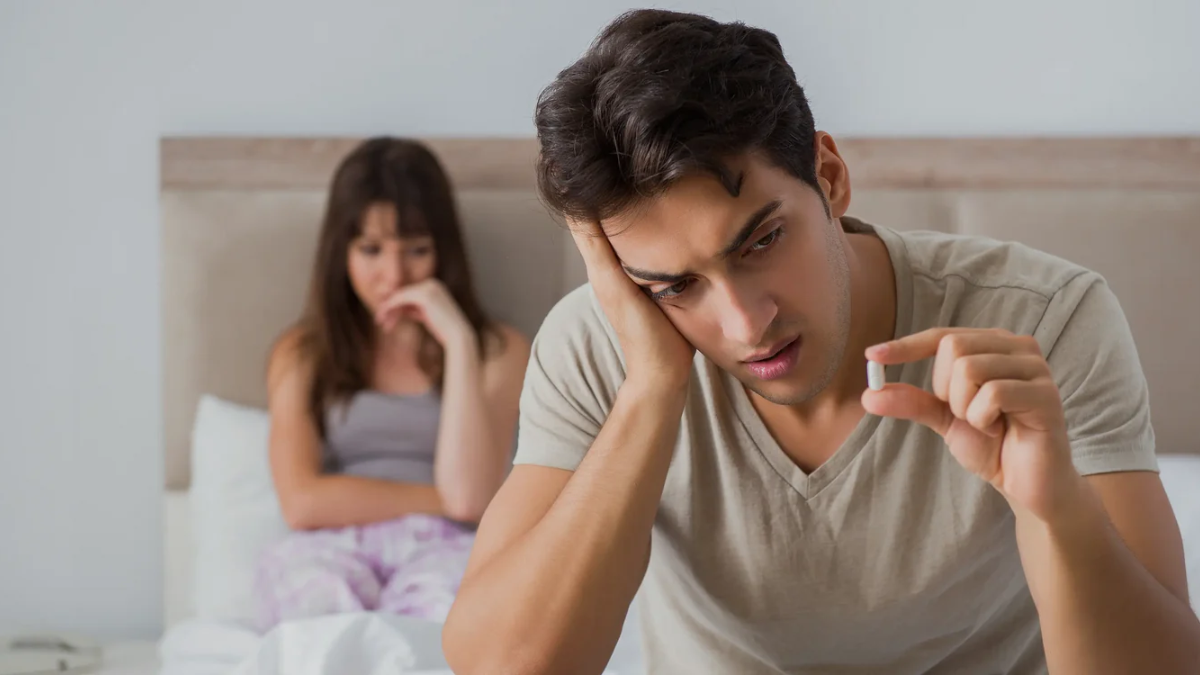Let’s be real for a minute—when it comes to tackling hair loss, finasteride is a game-changer that’s been proving its worth for years. However, if you’ve been surfing the web doing your homework, you’ve probably stumbled upon some chatter about its potential impact on your love life. Some folks brush it off as no big deal, while others make it sound like a horror story.
So, what’s the scoop?
We’re here to break it down for you with some no-nonsense facts. We’ll separate the myths from the medically-backed truth, helping you make informed choices without getting lost in a sea of panic and misinformation.
Understanding Finasteride
First off, what exactly is finasteride? It’s a 5-alpha reductase inhibitor, which is basically a fancy way of saying it stops your body from converting testosterone into dihydrotestosterone (DHT). DHT is the culprit behind shrinking hair follicles in dudes who are genetically prone to losing their hair.
By dialling down DHT levels, finasteride helps slow down the hair loss process and can even kickstart some regrowth where your follicles are still hanging in there.
You take it once a day as a pill, typically 1mg, when using it to combat hair loss.
The Buzz: What’s Everyone Saying?
The hot topics when it comes to finasteride and sexual vibes include:
- A dip in libido
- Trouble with erections
- Less ejaculation volume
- Finding it tough to climax
There are also a few claims floating around about long-term issues or “post-finasteride syndrome” (PFS) that the internet loves to hash out, but it’s still a grey area in medical circles.
Let’s see what the science has to say.
What the Research Reveals
Clinical research shows some guys might face sexual side effects—but they’re rare and usually short-lived.
Key takeaways:
- About 1–2% of guys report issues like reduced sex drive or trouble getting it up during clinical trials.
- Most of these problems clear up either while you’re still on it or after stopping.
- Even placebo groups (those not actually on finasteride) report similar issues, pointing to a nocebo effect (where expecting negative outcomes triggers symptoms).
A big study in 2012 from The Journal of Clinical and Aesthetic Dermatology found finasteride safe and effective, stating sexual side effects weren’t much higher than in placebo groups.
Bottom line: Side effects? Possible, but not common—and mental factors might play as big a role as physical ones.
The Controversial PFS: What’s the Real Deal?
Some guys claim lasting sexual issues even after quitting the drug—dubbed post-finasteride syndrome (PFS), causing a stir online.
As it stands:
- PFS isn’t officially recognized by all medical authorities (including the FDA).
- We don’t have solid evidence linking finasteride to long-term sexual dysfunction.
- More high-quality research is needed to get to the bottom of these rare cases.
Still, if you’re having side effects, especially post-treatment, it’s time for a chat with a health pro to really dig into your situation.
Real-Life Use: What the Pros at Sons See
At Sons, where countless guys rock finasteride annually, the stats back up what science says:
- Most users breeze past sexual side effects.
- If symptoms pop up, they’re often mild, temporary, and will pass.
- Many who initially notice something weird soldier on and the side effects fade away naturally.
Don’t forget, stressing about possible side effects can actually bring them on—especially when you’re just starting out.
Should You Stress About It? Thinking about trying finasteride?
Here’s the lowdown:
- The risk of sexual side effects is slim—but not non-existent.
- If symptoms do show up, they usually fade with time or when you stop treatment.
- You can always start, keep tabs, and reevaluate with your doc’s help.
Worried? Regular check-ins can keep you cool and confident in your plan.
How to Keep Risks at Bay Want to try finasteride while keeping side effects to a minimum?
- Stick to the standard dose (1mg/day) – Don’t up the dose without a green light.
- Take it at the same time daily – Consistency keeps hormone levels steady.
- Don’t obsess over symptoms – The more you dwell, the more likely you are to notice stuff, even if it’s not related.
- Track how you’re feeling – Jotting down any changes helps you talk it through clearly with your doc.
If Side Effects Hit, Don’t Freak Out
Take a breath—don’t self-diagnose based on online chatter.
- Reflect: Are symptoms constant or come-and-go? Are they interfering with your day-to-day?
- Get professional advice: Adjusting your dose, switching it up, or taking a quick break might be on the table.
- Know your choices: There are other hair solutions out there, like topical DHT blockers and minoxidil.
Your well-being comes first. Whether you stick with finasteride or not, there’s always a way forward.
The Bottom Line: Knowledge is Power, Not Fear
There’s a ton of chat about finasteride, but the science doesn’t lie: it’s effective, well-researched, and a safe bet for most guys.
Worried about sexual side effects?
Talk it over, weigh the pros and cons, and remember—you’re calling the shots on your treatment. For most, the advantages outweigh any risks—and with the right guidance, you’ve got this.
Whether you’re thinking of starting finasteride or just gathering intel, Sons has your back with honest advice, expert support, and treatment plans that put you in the driver’s seat. Get started with us at Sons.

